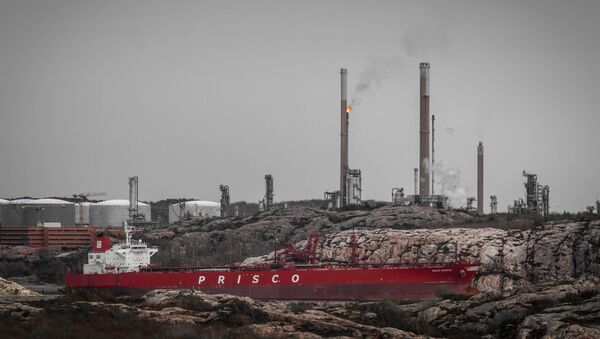At present there are about 50 deposits with exploration permits for onshore drilling, scattered throughout the Swedish provinces of Dalarna, Gotland, Öland and Östergötland.
Lake Siljan, which is situated in Dalarna and is one of Sweden's largest, is often named in connection with plans of oil extraction. Anders Rydberg, who chairs the company Igrene AB, which analyzes the volumes available and their profitability, is hostile to a comprehensive ban. Instead, he argued, each case should be examined separately.
The ban would also cover shale gas, which contains high amounts of kerogen that may be used for petroleum production. Small-scale extraction of shale has been carried out since the 1630s in the provinces of Västergötland, Östergötland, Närke and Skåne.
Before the international oil crisis of the 1970s, the majority of oil arrived to Sweden from the Middle East. In the following decades, Sweden's neighbor states Norway and Denmark have played a major role in the supply of oil for Swedish refineries. Over the past decade, however, Russia has taken over as the single largest exporter of crude oil to Sweden. In 2015, over 44 percent of Sweden's total oil imports of 23 million cubic meters came from Russia, number-cruncher Statistics Sweden reported. Incidentally, Sweden itself remains an important producer and exporter of diesel and gasoline.
Today, with the Social Democrats back in the driver's seat, Sweden is on target to generate all of its electricity from renewables by 2040, and has goals to go entirely carbon-neutral by 2045.
Never miss a story again — sign up to our Telegram channel and we'll keep you up to speed!






